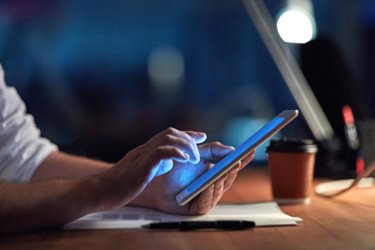BYOD Goes Mainstream
By Anthony Mikulaschek, eCOA Operations Lead

When COVID-19 forced the mass closure of trial sites and hospitals, regulators were quick to encourage the use of technology and remote monitoring to keep trials moving forward, and patients safe and engaged. It opened the door for patients to use their own personal devices to record trial data and gave sponsors the nudge they needed to support a BYOD (bring your own device) approach to data collection.
Regulators respond to COVID
In March, 2020, the US Food and Drug Administration (FDA) released a Guidance on Conduct of Clinical Trials of Medical Products during COVID-19 Pandemic, which specifically suggests using virtual assessments and monitoring where appropriate, and encourages sponsors to provide devices to patients “who do not have access to appropriate communication technology (e.g., cell phones or Internet).” This phrasing indicates support for patients to use their own devices to complete eConsent forms and electronic clinical outcomes assessments (eCOAs), if they have them.
The European Medicines Agency (EMA) took an even more direct stance. Its recently updated Draft Guideline on Computerized Systems and Electronic Data in Clinical Trials specifically says ePRO and eCOA data may be captured “by privately owned devices, such as mobile phones, tablets, computers and wearables, i.e. BYOD.”
Get unlimited access to:
Enter your credentials below to log in. Not yet a member of Clinical Leader? Subscribe today.
